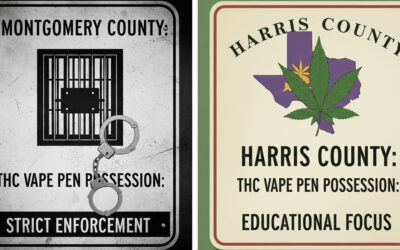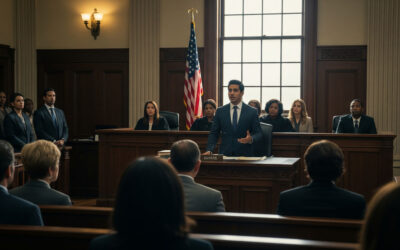Montgomery County, Texas, How it’s different from Harris County, Texas and THC vape pens, a cautionary tale… There are...
Criminal Defense

I just got arrested for DUI in Texas, What do I do?
Being arrested for a DUI (Driving Under the Influence) in Texas is serious but taking prompt and informed actions can...
Understanding Criminal Mischief Laws in Texas: What You Need to Know
If you've been charged with criminal mischief in Texas, you may not fully understand the seriousness of the...
Warrantless Vehicle Searches in Texas: What You Need to Know
If you're pulled over in Texas and a police officer asks to search your car, you might wonder: Do they need a warrant...
In the interest of full disclosure….
Let’s start this off at the beginning. I live a boring life. I have never done anything wrong. Ever. When I say...
DWI Involving Prescription Medications: What You Need to Know
Most people think of alcohol or illegal drugs when they hear about a DWI (Driving While Intoxicated), but in Texas—and...
What It Means to “Go Open” to a Judge on Punishment
A defendant charged with a crime often has a tough choice to make: accept a plea deal with a negotiated punishment or...
9th Court of Appeals Opinions – August 10th
On August 10th the 9th Court of Appeals released several opinions and other rulings, one of which was not a memorandum opinion. GIPSON v. TEXAS – Reversed and Remanded At issue in this case was the 252nd District Court’s revocation of the Appellant’s probation. The Appellant had plead “True” to one of three allegations that he violated the terms of condition of probation. For reasons that are unimportant to us, the other two allegations were not pursued at the revocation hearing. The Appellant pleaded “True” to not paying the court-assessed fees. The prosecution did not put on any evidence, and the trial court revoked Appellant’s community supervision, assessing a prison sentence of 8 years, solely on the pleadings. For those not well-versed in the Texas Code of Criminal Procedure, Article 42.12 is the (rather lengthy) portion of the code detailing the ins and outs of probation and deferred adjudication. The court in Beaumont cites the pertinent part, section 21(c), and goes through a bit of legislative history detailing a recent change. In brief, that section calls for trial courts hearing a revocation matter which has at issue only proof or the admission of non-payment of “compensation paid to appointed counsel, […]
Court of Criminal Appeals: “a cell phone is not like a pair of pants”
The highest appellate court for criminal matters held that a warrantless search through a cell phone violated the 4th Amendment on the U.S. Constitution. The cell phone was in the property lockup of the Walker County Jail when an officer with the Huntsville Police Department accessed the contents of the phone without a warrant or permission from the owner. The phone’s owner was incarcerated for a matter totally unrelated to the officer’s investigation when prompted him to look through the phone’s contents. The Court, because it reasoned that “a cell phone is not like a pair of pants or a shoe,” held that the search was unconstitutional and upheld the trial court’s suppression of the evidence gathered in that search. The full text of the opinion is here: Texas v. Granville.









